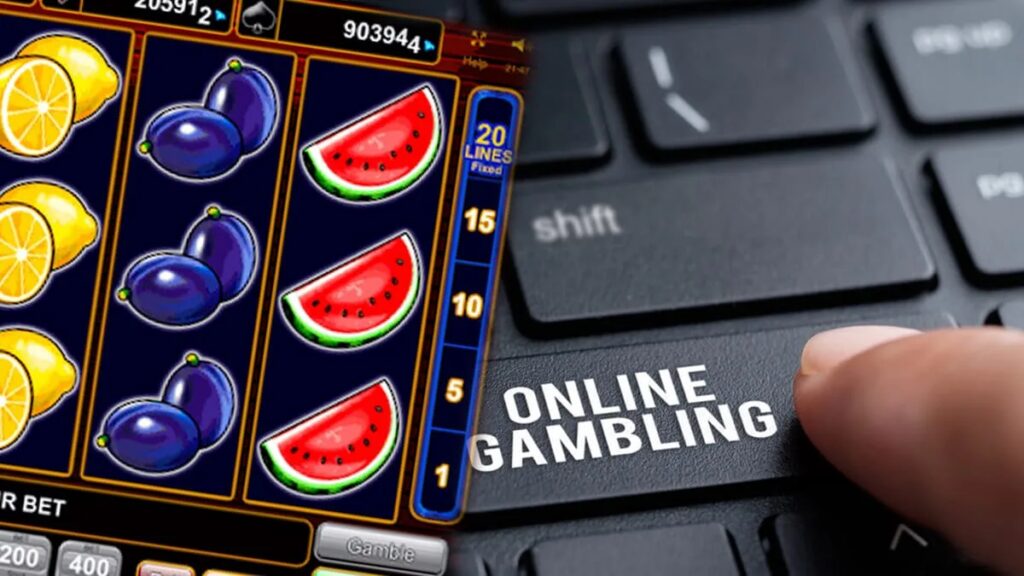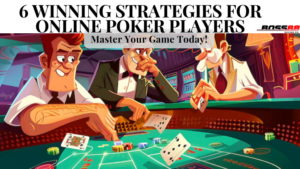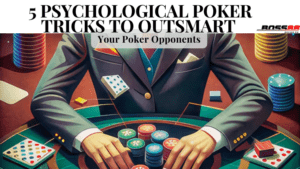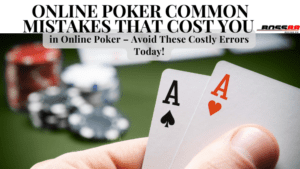Risk vs. Reward, Online casinos are designed to thrill, challenge, and reward, but understanding the balance between risk and reward is essential to success. Whether you’re spinning slots, doubling down on blackjack, or betting on roulette, recognizing the theories behind risk vs. reward can help you make smarter decisions and maximize your enjoyment.
In this guide, we explore three key risk vs. reward theories every online gambler should know to boost their strategies and keep their gameplay exciting yet responsible.

The Expected Value Theory
What is Expected Value (EV)?
Expected Value is a fundamental concept in gambling that helps players understand the long-term outcomes of their bets. EV represents the average amount you can expect to win or lose per bet if you were to play a game repeatedly under the same conditions.
In online casinos, this theory is crucial for identifying whether a game or bet offers positive or negative EV.
How It Works in Online Casinos
- Slots: If a slot has a return-to-player (RTP) rate of 96%, its expected value is -4% over time. While there are occasional big wins, the long-term outcome will generally favor the house.
- Table Games: Games like blackjack offer a higher chance of positive EV when you use optimal strategies, such as basic strategy charts.
Risk vs. Reward Takeaway
The Expected Value theory teaches players to analyze games based on long-term profitability. For example:
- Low-risk games (like blackjack or baccarat) typically offer small but consistent wins.
- High-risk games (like progressive jackpot slots) carry low chances of winning but can yield massive rewards.
Pro Tip
Before betting, check the RTP or house edge of your chosen game. Opt for games with higher RTP if you prefer lower risk.
The Prospect Theory
What is Prospect Theory?
Risk vs. Reward, Developed by psychologists Daniel Kahneman and Amos Tversky, Prospect Theory explains how people perceive gains and losses. The theory suggests that losses have a more significant emotional impact than equivalent gains.
How It Applies to Online Casinos
Online gamblers often fall prey to emotional biases influenced by Prospect Theory. For instance:
- Chasing Losses: Players who lose a significant amount may bet more aggressively to “recover” their losses, ignoring the increased risk.
- Overvaluing Wins: A small win can make players feel overconfident, leading to reckless betting decisions.
Risk vs. Reward Takeaway
Understanding Prospect Theory helps players manage emotions and make rational decisions. Instead of focusing solely on short-term wins or losses, consider your overall strategy and bankroll management.
Pro Tip
Set strict limits for losses and stick to them. Emotional control is a vital skill for minimizing risk.

The Kelly Criterion
What is the Kelly Criterion?
Risk vs. Reward, The Kelly Criterion is a formula that helps players determine the optimal bet size based on the perceived probability of winning. By calculating the ideal wager, it maximizes growth while minimizing the risk of going bankrupt.
The Formula
The formula for Kelly Criterion is:
f=bp−qbf = \frac{bp – q}{b}
Where:
- ff = Fraction of your bankroll to bet
- bb = Odds (in decimal format)
- pp = Probability of winning
- qq = Probability of losing (1-p)
How It Works in Online Casinos
Suppose you’re playing a game with a 60% chance of winning (p = 0.6) and even odds (b = 1). According to the formula:
f=(1×0.6)−(1−0.6)1=0.2f = \frac{(1 \times 0.6) – (1 – 0.6)}{1} = 0.2
You should bet 20% of your bankroll.
Risk vs. Reward Takeaway
The Kelly Criterion provides a systematic way to manage your bankroll and avoid over-betting. It balances potential rewards with calculated risks, ensuring sustainable gambling.
Pro Tip
Use the Kelly Criterion for games where you can estimate probabilities, such as blackjack or sports betting, rather than chance-based games like slots.
Balancing Risk and Reward in Online Casinos
Low-Risk Strategies
- Stick to games with low house edges, like blackjack, baccarat, or poker.
- Set smaller bets and play longer sessions for consistent entertainment.
- Utilize bonuses and free spins to minimize personal investment.
High-Risk Strategies
- Play progressive slots or high-volatility games for a chance at big jackpots.
- Use aggressive betting systems like the Martingale, but only with strict limits.
- Enter high-stakes tournaments to test your skills against seasoned players.

Tips for Managing Risk and Maximizing Rewards
- Set a Bankroll Limit: Decide how much money you can afford to lose before starting.
- Use Bonuses Wisely: Take advantage of welcome offers, but read the terms carefully.
- Avoid Tilt: If emotions take over, take a break to regain focus.
- Track Your Results: Keep a record of wins and losses to analyze patterns and improve.
- Stay Informed: Learn the rules and strategies of each game before playing for real money.
Final Thoughts
Mastering risk vs. reward theories is a powerful way to elevate your online casino experience. By understanding Expected Value, Prospect Theory, and the Kelly Criterion, you can approach gambling with a balanced perspective, combining strategy with enjoyment.
Risk vs. Reward, the ultimate goal of online casinos is to provide entertainment. Whether you aim for small, steady wins or big jackpot payouts, maintaining a strategic mindset and practicing responsible gaming will ensure you enjoy the thrill without compromising your financial well-being.







































